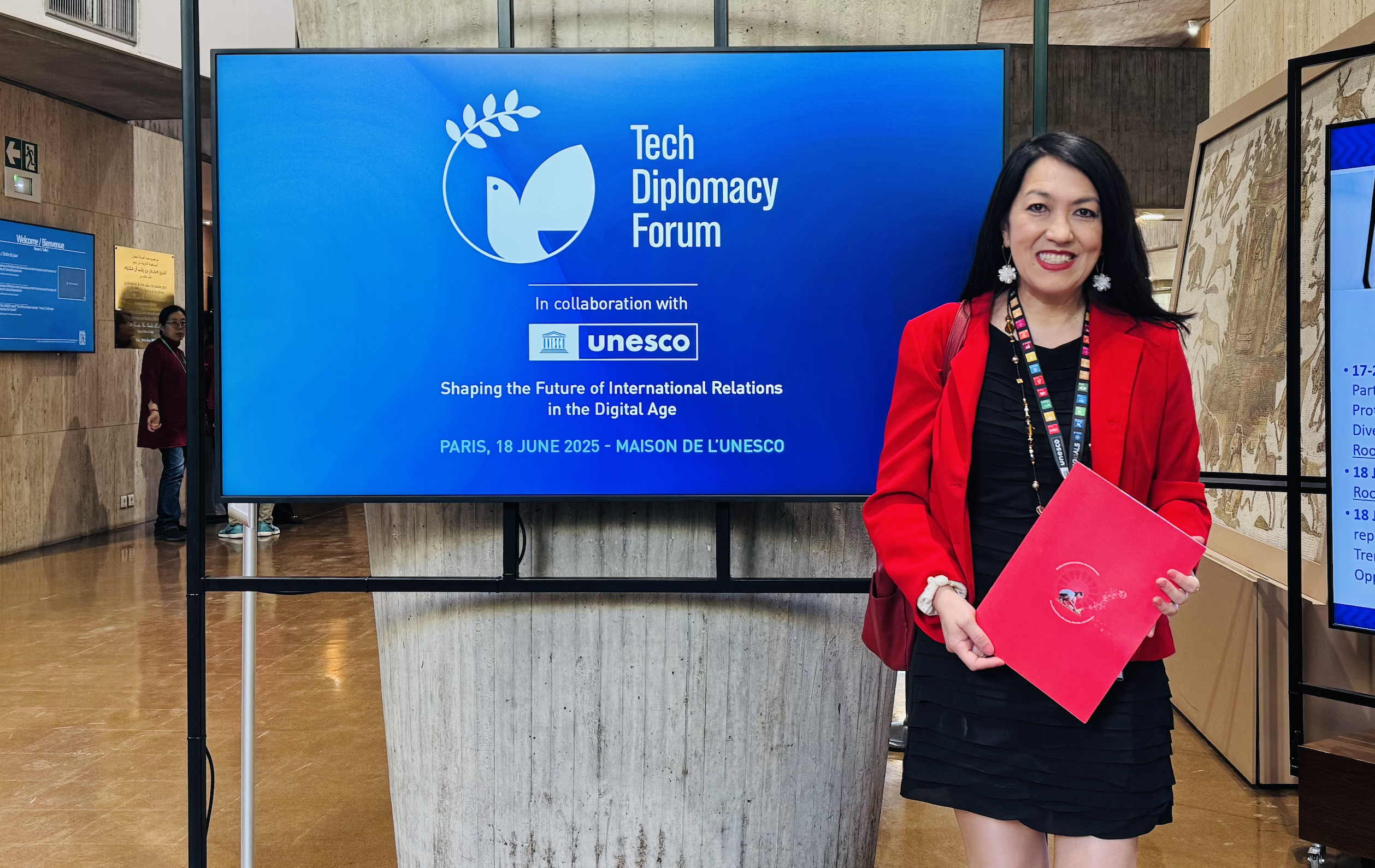OU News
News from The Open University
- Home
- The CONNECT Initiative: empowering the next generation for global digital co-operation through sci-tech diplomacy
The CONNECT Initiative: empowering the next generation for global digital co-operation through sci-tech diplomacy
Posted on • Education, University news

The CONNECT initiative, led by The Open University and discussed during UNESCO’s Science Diplomacy Dialogue and Global Education events, is being recognised as a flagship example of capacity-building in scientific and technological diplomacy.
CONNECT is a project aiming to support secondary schools to adopt open schooling, integrating science-action in the core-curriculum and using participatory-science with families, universities and enterprises.
With more than 50,000 students engaged across five countries, CONNECT illustrates how young people can co-create solutions to global challenges by combining emerging technologies, collaborative problem-solving, and diplomatic skills.
Using the CARE–KNOW–DO framework – an open schooling approach where schools work with families and experts to solve real problems, students — especially from underserved communities, climate-affected regions, rural areas, semi-arid zones, and Indigenous territories — collaborate with scientists, educators, and civil society to co-develop real-world scientific and technological solutions to issues across the globe.
- CARE encourages students to value sustainability, justice, and equity.
- KNOW focuses on building critical, evidence-based understanding of issues.
- DO invites students to take action—communicating, collaborating, and innovating to address real-world problems.
Some of the issues that have been tackled using this approach are microplastic pollution, gender injustice, mental health, and climate change.
Combining local knowledge and global technologies, the success of these projects show how education can become a channel for diplomacy, equity, and sustainable development—one that is youth-led, locally grounded, and globally impactful.
The Care Know Do framework was developed by Dr Alexandra Okada, Associate Professor at The Open University. She said:
“This is tech diplomacy in action. When students lead co-creation processes rooted in local realities and global challenges using emerging technologies, they’re not just learning — they’re building the digital co-operation of the future.”
Dr Okada added: “Open schooling fosters creativity, critical thinking, and civic engagement. It empowers young people to become changemakers, ready to shape a fairer, more resilient society—one where democracy is experienced, not just explained. The call to action is clear. Invest in science education for tech diplomacy — start with youth, co-creation, and equitable innovation.”
Visit the OU’s free learning platform OpenLearn to explore how the CARE–KNOW–DO framework helps educators and young people develop the values, knowledge, and actions needed to shape global solutions and tackle pressing challenges, from climate change to AI governance